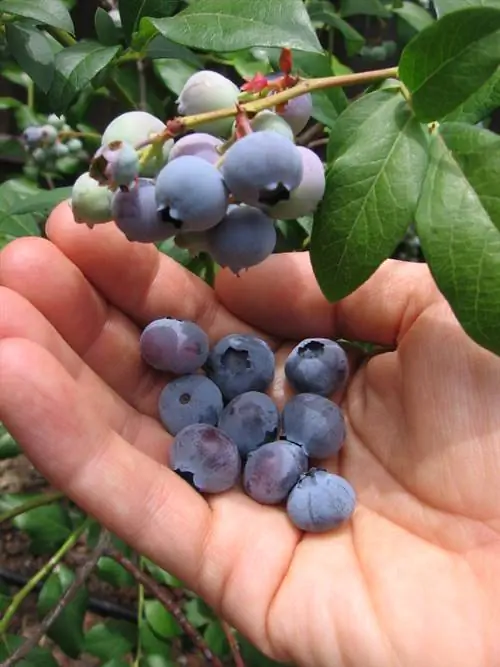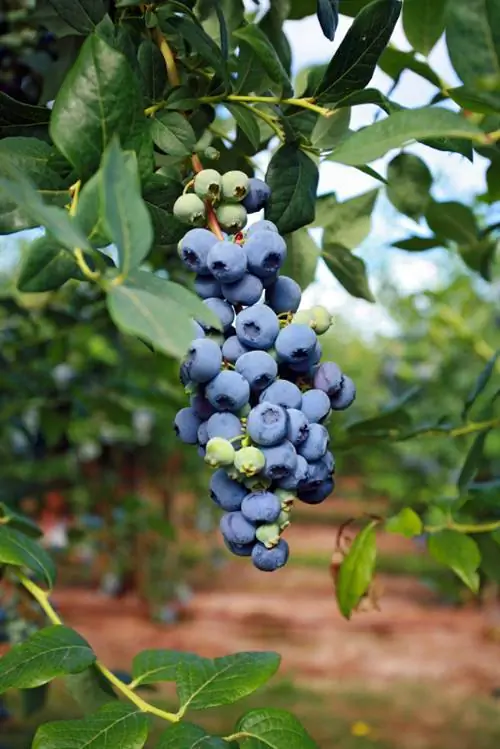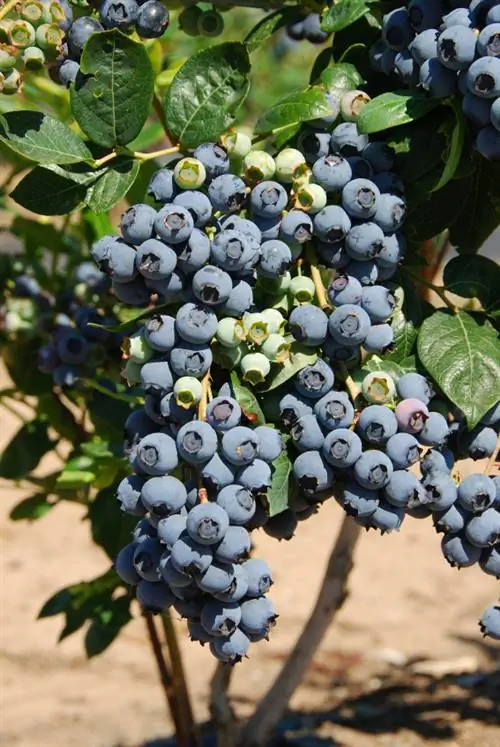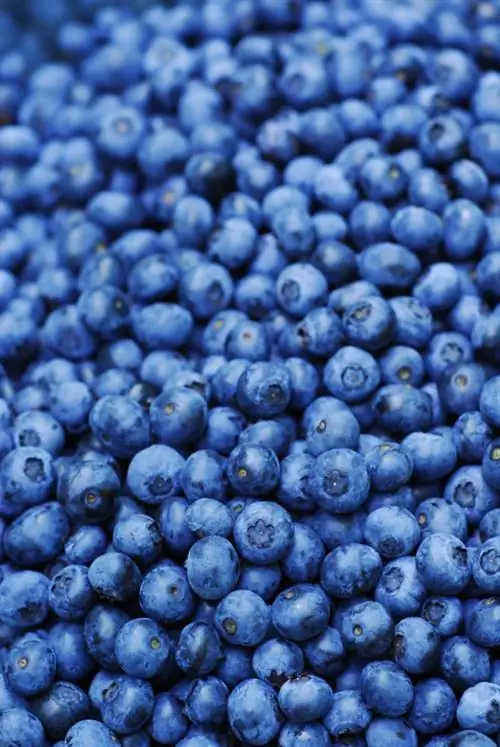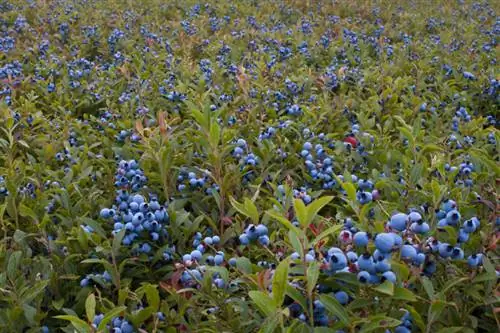- Author admin leonars@hobbygardeners.com.
- Public 2023-12-16 16:46.
- Last modified 2025-01-23 11:20.
In the wild, wild blueberries bear a certain number of fruits each season, even without artificial fertilization. The cultivated blueberries in the garden must be fertilized to ensure a correspondingly high fruit yield.
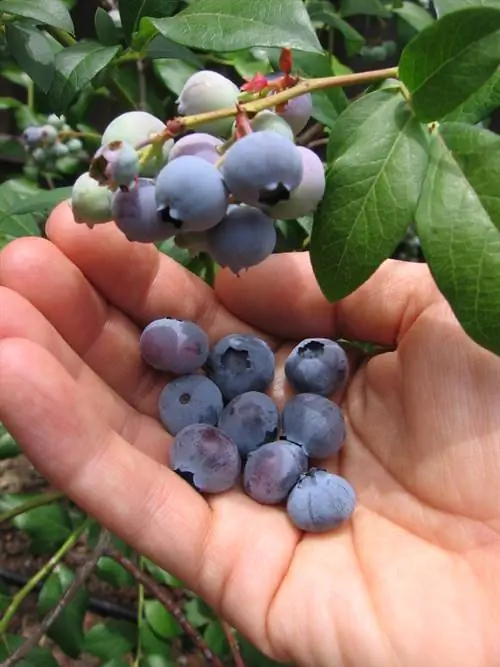
When and how should you fertilize cultivated blueberries?
Cultivated blueberries should be fertilized in the spring before budding and in early summer with a lime-free special fertilizer for blueberries or rhododendrons. Avoid stable manure and fresh compost as they can have an unfavorable effect on the pH value of the soil.
The problem with the limescale
Cultivated blueberries, like their wild relatives in the forest, react very sensitively to calcareous soils and watering. Therefore, care should not only be taken to ensure that the soil substrate is acidic and as lime-free as possible when planting blueberries, but also when choosing irrigation water. Many common garden fertilizers contain certain amounts of lime and are therefore extremely unsuitable for fertilizing cultivated blueberries.
The right time to fertilize cultivated blueberries
Cultivated blueberries primarily require a lot of energy for two purposes: for the formation of new branches and for fruiting in summer. Accordingly, the first fertilization should be carried out in the spring before the new branches and leaves emerge. The second fertilization in early summer then ensures a sufficient energy supply for the development of a rich harvest from the beginning of July. Fertilization in late autumn, on the other hand, would not be very useful, as this would stimulate shoot growth late in the year and thus significantly reduce the winter hardiness of the plants.
Choosing the right fertilizer for blueberries
When using commercially available fertilizer for blueberries in the garden, you should definitely choose a lime-free special variant specifically for blueberries or rhododendrons. However, you should avoid adding stable manure and fresh compost, as these can contain a lot of lime and have an unfavorable effect on the pH value of the soil for the blueberries. But you can also use certain materials from your own garden to ensure organic fertilization and at the same time an acidic soil environment. Ideally, you should use the mature compost from:
- Fir and spruce needle litter
- Conifer bark
- sawdust not contaminated with chemical substances
Tips & Tricks
In order to avoid over-fertilization of the blueberry bushes, sparing doses of nitrogen fertilizers such as ammonium sulfate and ammonium nitrate are recommended in private gardens. Administration of about 40 to 50 grams of sulfuric ammonia per bush in spring stimulates the formation of new branches.

